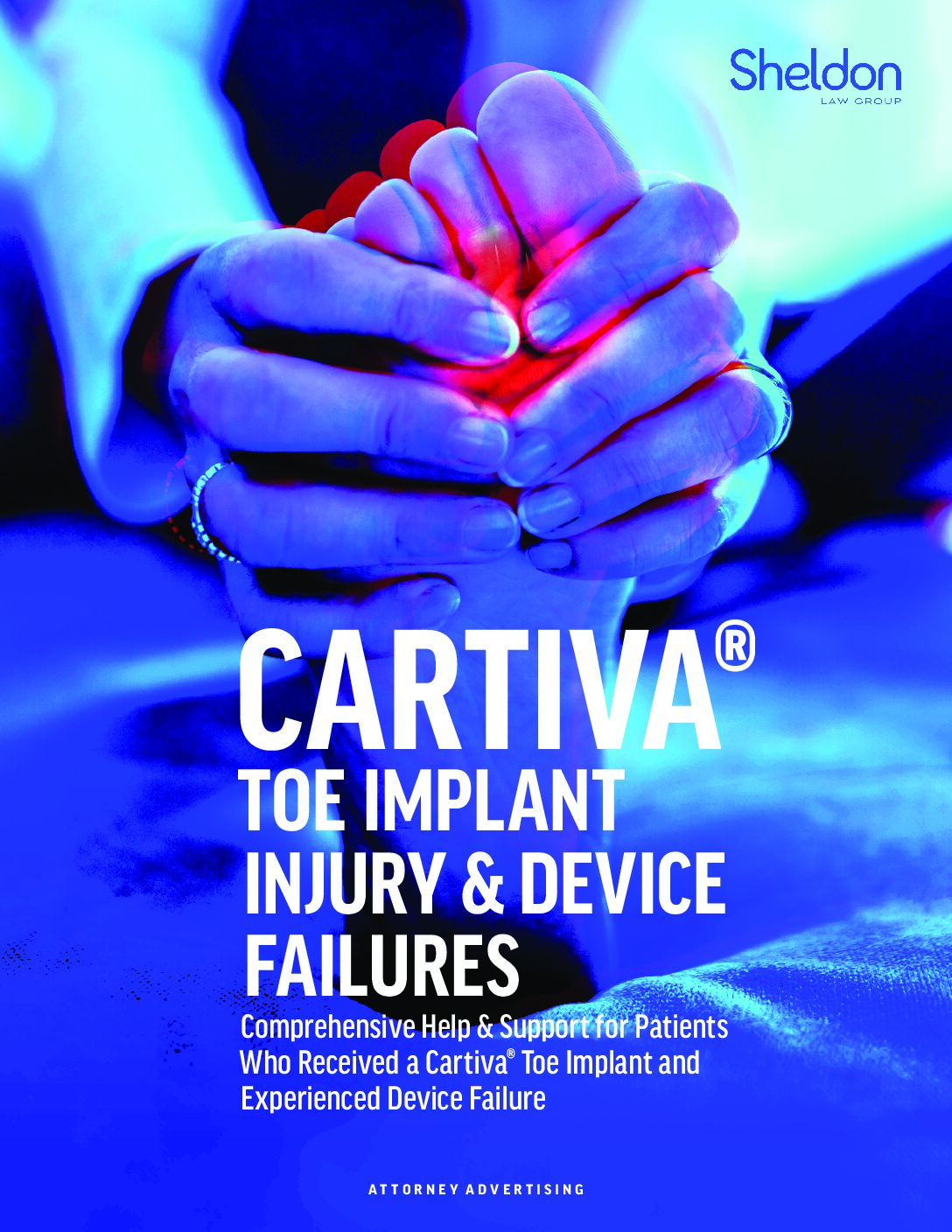Risk Factors for Cartiva Implant Complications
Cartiva implant is a synthetic cartilage implant used to treat osteoarthritis of the first metatarsophalangeal joint (the big toe joint). It is designed to reduce pain and improve function by replacing the damaged cartilage in the joint. However, Cartiva implantation may have some potential risks and complications for some patients.
Get A 100% Free CASE EvaluationCan Anyone with Big Toe Arthritis Get an Implant?
According to the FDA (Food and Drug Administration), the Cartiva implant should not be implanted in patients with the following conditions:
- Active infection of the foot
- Known allergy to polyvinyl alcohol (the material of the implant)
- Inadequate bone stock due to significant bone loss, avascular necrosis, and/or large osteochondral cyst (> 1cm) of the first metatarsophalangeal joint
- Lesions of the first metatarsal head greater than 10 mm (about 0.39 in) in size
- Diagnosis of gout with tophi (uric acid crystals)
- Physical conditions that would tend to eliminate adequate implant support (e.g., insufficient quality or quantity of bone resulting from cancer, congenital dislocation, or osteoporosis), systemic and metabolic disorders leading to progressive deterioration of bone (e.g., cortisone therapies or immunosuppressive therapies), and/or tumors of the supporting bone structures
These conditions may affect the stability, alignment, or integration of the implant with the bone, or cause inflammation, infection, or allergic reaction.
Other Factors that May Affect Big Toe Implant Success
Additionally, some other factors that may increase the risk of Cartiva implant complications are:
- Age: Older patients may have more comorbidities, weaker bones, or slower healing
- Smoking: Smoking may impair blood circulation, wound healing, and bone health
- Diabetes: Diabetes may affect blood sugar levels, wound healing, and nerve function
- Autoimmune diseases: Autoimmune diseases may cause inflammation, infection, or rejection of the implant
- Allergies: Allergies may cause hypersensitivity or adverse reaction to the implant or other materials used in surgery
- Medications: Some medications may interfere with blood clotting, bone healing, or immune response
Possible Cartiva Big Toe Implant Complications
Studies have shown that some patients may experience serious complications after Cartiva implantation including:
- Pain and discomfort
- Joint stiffness
- Swelling and inflammation
- Infection
- Nerve damage or numbness
- Bone loss
- Implant loosening, migration, wear, or fracture
- Reduced range of motion
- Need for revision surgery or implant removal
If You Suffered Complications After Receiving a Cartiva Toe Implant, We Can Help.
If you have suffered from complications after receiving a Cartiva Toe Implant, contact us now. We are fighting to protect the rights of patients allegedly injured by Cartiva toe implants and hold the device makers fully accountable for putting profits above the health and well-being of patients.
Patients who received a Cartiva toe implant and were forced to have additional surgery to remove or replace the device, may be entitled to significant financial compensation. Contact us now to learn more about your rights and whether you are entitled to compensation.

